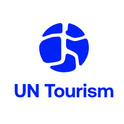China´s new national tourism strategy set to increase outbound tourism
'The Outline for National Tourism and Leisure (2013-2020)', recently issued by the government of China, sets the ground for the redefinition of tourism development and management in the country, including a strong support for outbound tourism as well as a focus on a greater distribution of the economic, socio-cultural and environmental benefits of tourism.
The Outline for National Tourism and Leisure (2013-2020), issued by the State Council of China, focuses on promoting the taking of paid annual leave days and boosting the healthy development of the tourism sector in China, in particular by ensuring the coordination of different sectors.
Where previously cultural norms have stopped many in China from taking an annual leave, the Outline, which reinforces existing Regulations for Paid Annual Leave for Employees, encourages government agencies, social organizations, enterprises and public institutions to promote the use of leave days, giving moreover Chinese workers more freedom and flexibility on the issue of where and when to travel.
"The successful implementation of the new Chinese national tourism strategy will surely impulse both domestic and outbound tourism in China and we particularly welcome the decision to promote travelling at different times of the year" said UNWTO Secretary-General Taleb Rifai. "This document calls on a variety of sectors to strategically consider their actions in view of the development of tourism; it is another proof that China fully understands that sustainable tourism growth requires cross-cutting policies at a national level", he added.
The Outline, advocated for a long time by the China National Tourism Administration (CNTA), comes four years after the tourism sector in China was acknowledged as a 'pillar' industry of modern services and one of the major social and economic sectors on the government´s agenda.
Relevant link: China´s New Landmark Tourism Strategy: The Outline for National Tourism and Leisure (2013-2020)
About UN Tourism
The World Tourism Organization (UN Tourism) is the United Nations agency responsible for the promotion of responsible, sustainable and universally accessible tourism.
As the leading international organization in the field of tourism, UN Tourism promotes tourism as a driver of economic growth, inclusive development and environmental sustainability and offers leadership and support to the sector in advancing knowledge and tourism policies worldwide.
Our Priorities
Mainstreaming tourism in the global agenda: Advocating the value of tourism as a driver of socio-economic growth and development, its inclusion as a priority in national and international policies and the need to create a level playing field for the sector to develop and prosper.
Promoting sustainable tourism development: Supporting sustainable tourism policies and practices: policies which make optimal use of environmental resources, respect the socio-cultural authenticity of host communities and provide socio-economic benefits for all.
Fostering knowledge, education and capacity building: Supporting countries to assess and address their needs in education and training, as well as providing networks for knowledge creation and exchange.
Improving tourism competitiveness: Improving UN Tourism Members' competitiveness through knowledge creation and exchange, human resources development and the promotion of excellence in areas such as policy planning, statistics and market trends, sustainable tourism development, marketing and promotion, product development and risk and crisis management.
Advancing tourism's contribution to poverty reduction and development: Maximizing the contribution of tourism to poverty reduction and achieving the SDGs by making tourism work as a tool for development and promoting the inclusion of tourism in the development agenda.
Building partnerships: Engaging with the private sector, regional and local tourism organizations, academia and research institutions, civil society and the UN system to build a more sustainable, responsible and competitive tourism sector.
Our Structure
Members: An intergovernmental organization, UN Tourism has 160 Member States, 6 Associate Members, 2 Observers and over 500 Affiliate Members.
Organs: The General Assembly is the supreme organ of the Organization. The Executive Council take all measures, in consultation with the Secretary-General, for the implementation of the decisions and recommendations of the General Assembly and reports to the Assembly.
Secretariat: UN Tourism headquarters are based in Madrid, Spain. The Secretariat is led by the Secretary-General and organized into departments covering issues such as sustainability, education, tourism trends and marketing, sustainable development, statistics and the Tourism Satellite Account (TSA), destination management, ethics and risk and crisis management. The Technical Cooperation and Silk Road Department carries out development projects in over 100 countries worldwide, while the Regional Departments for Africa, the Americas, Asia and the Pacific, Europe and the Middle East serve as the link between UN Tourism and its 160 Member States. The Affiliate Members Department represents UN Tourism's 500 plus Affiliate members.
